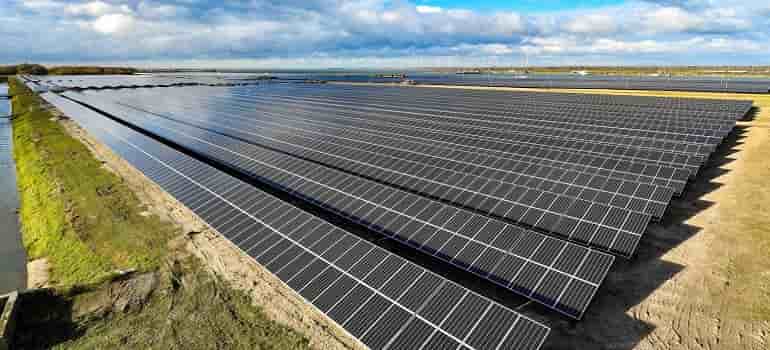
Raising concerns that the survival of the Solar Modules Manufacturers Industry is at stake, the All India Solar Industries Association (AISIA) today in its pre-budget recommendations suggested that this is the right time for providing manufacturing incentives, such as subsidies for Power, Capital, Interest and depreciation to this industry, duty free import of manufacturing equipment.
The association further recommended raising of export incentives from 2% to at least 10% for the Indian Solar modules manufacturing sector to reap the benefits of the Make in India initiative.
AISIA is an apex association comprising over 18 Domestic Solar Module Manufacturers and has been endorsed by Ministry of New and Renewable Energy (MNRE) for its path breaking initiative in enhancing the capabilities of Indian Solar sector. AISIA has been active in raising various concerns with the Government & Regulatory authorities and has been proactively available to help the small & medium sized companies.
The recommendations come in the backdrop of the last fiscal year which has been a forgettable year for the domestic solar modules manufacturing, with major issues of imported modules, as well as components, at ‘dumping’ prices, from China, Malaysia, Singapore and Taiwan, and bypassing of the safeguard duty tariff, apart from the other issues of GST, SDG, etc. The central Government offers hope as the unimplemented items, like the KUSUM and SRISTI schemes, and additional capacity creation, could move at a faster pace especially in the light of the Finance minister making a strong statement that Solar energy will be the ‘third crop for the Indian farmer’.
According to AISIA, “All this hope would come to naught, if the basic tariff issues are not resolved by the Government in its maiden Budget itself. It is time that India takes a definitive step in the anti-dumping war that is currently raging in the solar energy sector. A potential solution could be to create a high trade value against cheap imports from countries like China and/or a countervailing duty, to offset the huge subsidies offered by China to its solar manufacturers or offering preferential tariffs to domestic solar equipment manufacturers. The industry estimates that the minimum safeguard duty to ensure sustainability of this sector should be 45% to enable it to achieve the Nation’s goal. The need of the hour is a set of favorable policies that will foster rapid growth for the solar power industry.”
The same issues apply to the import of Glass and EVA, since in the former case the import is 92% and in the case of EVA where ~4 GW capacity in the country faces a yawning gap of 5 GW of imports, to cover the current module manufacturing capacity of 9 GW. The Anti-dumping duty on this only makes the locally manufactured modules uncompetitive to the Indian developers. The Indian Developers enjoy the benefit of Change in Law clause and hence are reimbursed the amount of the SGD paid by them. In both cases the locally produced modules lose competitiveness.
While the above critical issues must be addressed with alacrity by the Government, for not only the survival of an industry employing over 115,000 people and almost the same number in the support and ancillary value chain, but also for attaining its commitment to the world community of 100GW in solar energy generation in the next 40-45 months. This industry needs to be unfettered to play its true role in environmental upgradation and creation of a vast amount of employment opportunities directly in the industry’s full value chain and as a major export base for solar modules.

